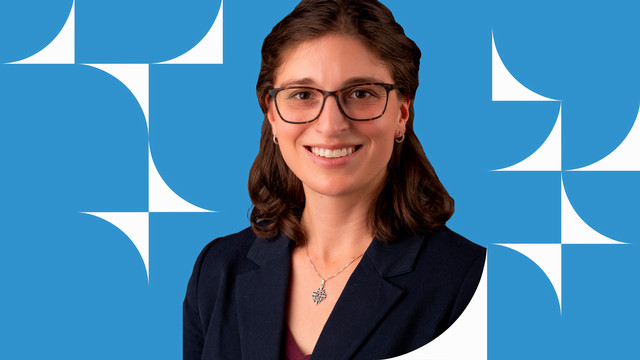Richmond alum is spearheading digital humanities efforts at Elon University
Alumni
For Amanda Laury Kleintop, a native of Ambler, Pennsylvania, attending the University of Richmond sparked an enduring interest in the American Civil War, Reconstruction, and the digital preservation of U.S. history. The Class of 2011 history and leadership studies double major is now an assistant professor of history at Elon University in North Carolina, where she is helping expand digital humanities efforts.
After her first semester at UR, Kleintop became the first undergraduate student to work in the nascent Digital Scholarship Lab at the invitation of then-University of Richmond President Edward Ayers. The Lab collects detailed research data about significant moments and trends in U.S. history — such as urban housing discrimination in the 1930s — then translates them into engaging visual media and enhanced maps.
Robert Nelson, now the DSL director, began at UR around the same time. He noticed Kleintop’s deep interest in the lab’s research topics compared to other student participants. “Amanda would take her work and go explore it in a more involved way,” Nelson said.
In a project studying written correspondence to understand the relationships between historical figures, Nelson tasked Kleintop with tracking abolitionists' letters and correspondence in the U.S. and England. Kleintop then relied on the social network analysis skills used in that project to work on her honors thesis about communities of Black Virginians who supported the U.S. during the Civil War.
“All I was supposed to do was track who was writing whom, the date, and where they were writing to and from. But then I would start reading the letters themselves, and I just got really into them,” Kleintop said. “Later, Rob asked if I liked the letters. He wanted me to read them and understand the issues being discussed, although he knew that I would without being asked.”
Besides her involvement in several living-learning communities, including one for freshman women in Moore Hall, where she met several of her current close friends, Kleintop worked in the lab for about three years. Her senior year, Kleintop left to focus on her honors thesis, using the social network analysis skills Nelson had helped her build.
“I wouldn’t have known about it if it weren’t for him,” she said. “He was not only really good at thinking through the methodology, but also really patient in teaching me how to use it.”
Turning a passion into a career
Following graduation, Kleintop worked on digital scholarship and public history projects with the Virginia Sesquicentennial of the American Civil War Commission, which helped the Commonwealth commemorate the war’s 150th anniversary. From 2012 to 2018, she pursued her doctorate at Northwestern University, despite her trusted mentor’s advice.
“I lobbied her not to go to grad school!” Nelson said, citing the risk of limited employment opportunities for a doctor of history. “Obviously, I was not successful, and I’m happy I wasn’t. She was determined to do this despite discouragement, and that showed that she was making a thoughtful choice in following her passion.”
Kleintop’s desire to contribute to digital humanities efforts drove her decision. She also admits to what she said was a “nerdy” reason — uninterrupted access to JSTOR, an online collection of journals and other scholarly resources for academics.
Fearless exploration
The time Kleintop spent in the DSL still influences her work. She contributed to many digital scholarship projects as an assistant history professor at the Massachusetts College of Liberal Arts. At Elon, she is working with others in the history and geography department to expand the school’s infrastructure for digital humanities research and coursework. One of her projects aims to educate students on how historical data can expose inequalities faced by various groups.
Through her career transitions, Kleintop has been in contact with her former DSL supervisor. Recently she asked for his guidance when forming Elon’s digital humanities collaborative. “Rob is one of those people you can email after you haven’t spoken for years, and he’s still really supportive,” she said.
While he’s more than happy to offer advice, Nelson no longer considers himself Kleintop’s mentor.
“She’s grown into a peer and a leader in the field,” he said. “Now, I just consider her a colleague. She’s doing remarkable things.”

